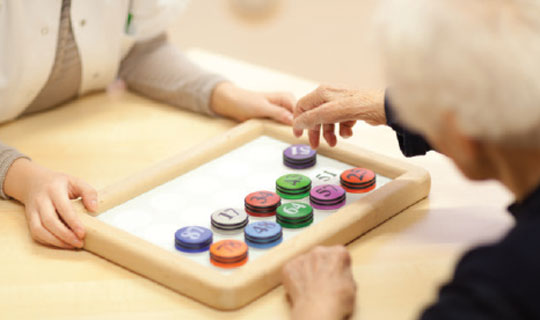An evaluation can help determine whether forgetfulness requires treatment.
 Misplacing keys or forgetting a name? There’s probably no need to worry, because these are signs of normal aging. On the other hand, getting lost while driving to a familiar destination or having trouble carrying on a conversation may be cause for concern.
Misplacing keys or forgetting a name? There’s probably no need to worry, because these are signs of normal aging. On the other hand, getting lost while driving to a familiar destination or having trouble carrying on a conversation may be cause for concern.
Memory problems are common: About 1 in 9 adults ages 45 or older report confusion or memory loss that is occurring more frequently or is worsening, according to a Centers for Disease Control and Prevention (CDC) study published in 2018. In the study, about half of the adults reported having trouble cooking, cleaning and taking medication. About half of these people are at risk for developing a more severe cognitive problem, such as dementia or Alzheimer’s disease.
Dementia refers to memory loss that’s severe enough to interfere with daily activities. While there are many types, Alzheimer’s disease is the most common. In 2014, as many as 5 million Americans had Alzheimer’s disease. Symptoms, which typically appear after age 60, include poor judgment; mood, personality or behavior changes; trouble paying bills; misplacing things and being unable to find them; and difficulty accomplishing routine tasks.The disease is the fifth leading cause of death among adults 65 or older, according to the CDC.
Diagnosing memory problems
If you’re concerned about your memory or that of a loved one, testing and treatment are offered at the James and Sharon Maida Geriatrics Institute. A mini mental screen combined with other testing can determine whether there’s a serious memory problem. During the screening test, the patient answers questions about the day, year and season.
Patients are asked to draw the face of a clock and solve simple math problems. A geriatric depression screening is also performed, since depression can lead to memory problems. Laboratory tests screen for thyroid imbalance, anemia and dehydration, which can interfere with memory. A CT scan or MRI of the head is performed to rule out any neurological problems, such as a brain tumor or stroke. An extensive history is also taken.
Healthcare providers ask about the patient’s ability to drive and cook, as well as his or her occupation. “If the patient was a financial adviser and is now missing bill payments, then we know there may be a problem,” says Melanie Vernacchia, APN, a nurse practitioner who specializes in geriatrics and palliative care.
If the patient has dementia or Alzheimer’s, he or she may be prescribed medication to slow the progression of memory loss. Typically, the patient is seen again in four to six weeks to ensure he or she has had a good response. If the person is doing well, he or she is typically seen every three to four months. “It’s hard to tell whether a person’s memory problems will progress,” says Vernacchia. “That’s why we need to have frequent follow-ups.”
While people with Alzheimer’s disease tend to experience worse symptoms over time, those with dementia may stay the same. “The person may forget names or how to drive, but he or she may still be able to get dressed and feed him or herself,” says Vernacchia.
Support for patients and families
At the Institute, there are many resources to assist families of patients with memory problems, as well as patients. Two support groups are designed for caregivers, and health coaches provide programs to help patients stay engaged. Popular classes include chair yoga, in which yoga moves are done while sitting in a chair, and painting. If you’re concerned about your own memory or that of a loved one, don’t hesitate to be evaluated. “It’s never too early to get tested,” says Vernacchia. “We offer a game plan for patients. If they’re okay, they can return for additional testing in six months or a year.”
Signs of a serious memory problem
Consider memory testing if you or a loved one is experiencing any of these problems:
• Asking the same questions repeatedly.
• Confused about time, people and places.
• Getting lost in familiar places.
• Unable to follow directions.
3 Simple ways to stay sharp
Learning new skills can help maintain—and improve—your memory. Try the following:
1 Sign up for a course in digital photography.
In a recent study published in the journal Psychological Science, learning this skill improved episodic memory, the ability to recall specific acts from
the past, such as where you parked the car.
2 Take a walk or go for a bike ride.
A study published in Neurology found that people who engaged in physical activity had better memory than those who didn’t. Being active may protect against brain changes caused by Alzheimer’s disease or dementia.
3 Learn how to quilt.
Like digital photography, this hobby can enhance memory, according to the study in Psychological Science.
To learn more about the James and Sharon Maida Geriatrics Institute, call 732.886.4700 or visit www.rwjbh.org/monmouthseniorhealth.